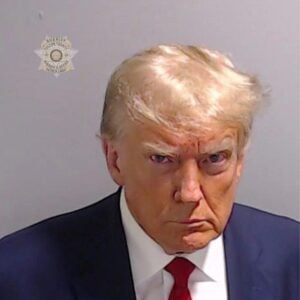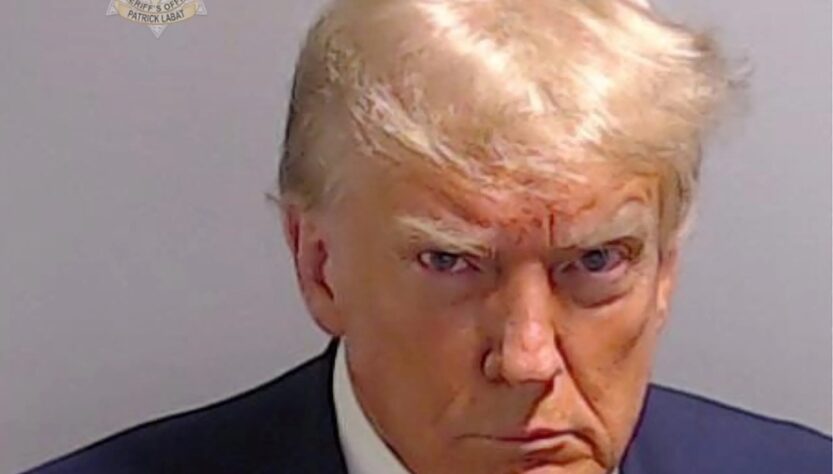 POP QUIZ!
POP QUIZ!
Which one of these counts as petitioning the government:
(A) Asking the secretary of state to “find 11,780 votes, which is one more than we have, because we won the state.”
(B) Ordering your campaign to assemble slates of fake electors who sign a false attestation claiming to have been duly elected by the citizens of Georgia.
(C) Importuning the vice president to unilaterally reject the valid electoral votes of 23 million Americans.
(D) None of the above.
PENCILS DOWN.
If you answered (D), congratulations, you passed ATL’s remedial civics class. Also, you are smarter (or more intellectually honest) than Donald Trump’s “real” lawyers, who filed a petition in Fulton County Superior Court this morning regarding First Amendment As-Applied Challenges to the RICO indictment against the former president and 18 of his hapless goons.
“President Trump enjoys the same robust First Amendment rights as every other American,” they argued. “The indictment here does not merely criminalize conduct with an incidental impact on protected speech; instead, it directly targets core protected political speech and activity. For this reason, it is categorically invalid under the First Amendment.”
Trump’s argument rests on “the Supreme Court’s unanimous consensus” in United States v. Alvarez, 567 U.S. 709 (2012) that the government can’t prosecute someone for telling lies about “matters of public concern.” In fact, the decision was 6-3, and Trump’s lawyers rely on Justice Alito’s dissent, in which he was joined by Scalia and Thomas. This is all the weirder since Justice Alito insisted that “the right to free speech does not protect false factual statements that inflict real harm and serve no legitimate interest,” and so Alvarez should have been prosecuted for falsely claiming to have received a Congressional Medal of Honor.
Instead, Trump says that the case guarantees his right to say that the 2020 election was stolen, despite all evidence to the contrary. Which it does, albeit in the majority opinion authored by Justice Kennedy. And if Trump had been indicted for telling his supporters abject lies about vote fraud, Alvarez would be totally on point. But since he’s charged with making false statements to induce elected officials to violate their oaths of office and participating a criminal conspiracy to steal Georgia’s 16 electors, it’s largely irrelevant.
Trump’s theory appears to be that all he did was ask people to break the law, and how can that even be a crime? Also, people who said the election was not stolen and urged their elected representatives to not do crimes aren’t being charged, and that is discrimination!
Criminalizing President Trump’s speech and advocacy disputing the outcome of the election—while speech endorsing the election’s outcome is viewed as unimpeachable—is thus blatant viewpoint discrimination.
On the plus side, Steve Sadow and Jennifer Little, Trump’s Georgia Counsel, manage to refrain from ad hominem attacks on the prosecutor and accusations that the entire case is a witch hunt being directed by President Biden. Lookin’ at you, Lauro!
In any event, the motion is probably DOA, if Judge Scott McAfee’s prior rulings are any guide. Before they pled out, Sidney Powell and Kenneth Chesebro filed similar motions to dismiss under the First Amendment. Writing in October, the court dismissed those as-applied challenges out of hand citing the lack of an evidentiary record as yet:
Georgia precedent bars the consideration of an as-applied challenge here where the factual record, to the extent any yet exists, is incomplete and vigorously disputed. There have been no formal evidentiary hearings tested by cross-examination, and nothing is stipulated. While the indictment goes further than the average case by describing a number of overt acts pertaining to both Defendants, the Court has not located nor been provided with any authority that a charging document alone can substitute for a traditional evidentiary record. Thus, the caselaw and the circumstances of this case as it currently stands require a denial of the Defendants’ request to consider an as-applied First Amendment challenge.
Ah, well, nevertheless …
Liz Dye lives in Baltimore where she writes the Law and Chaos Substack.

